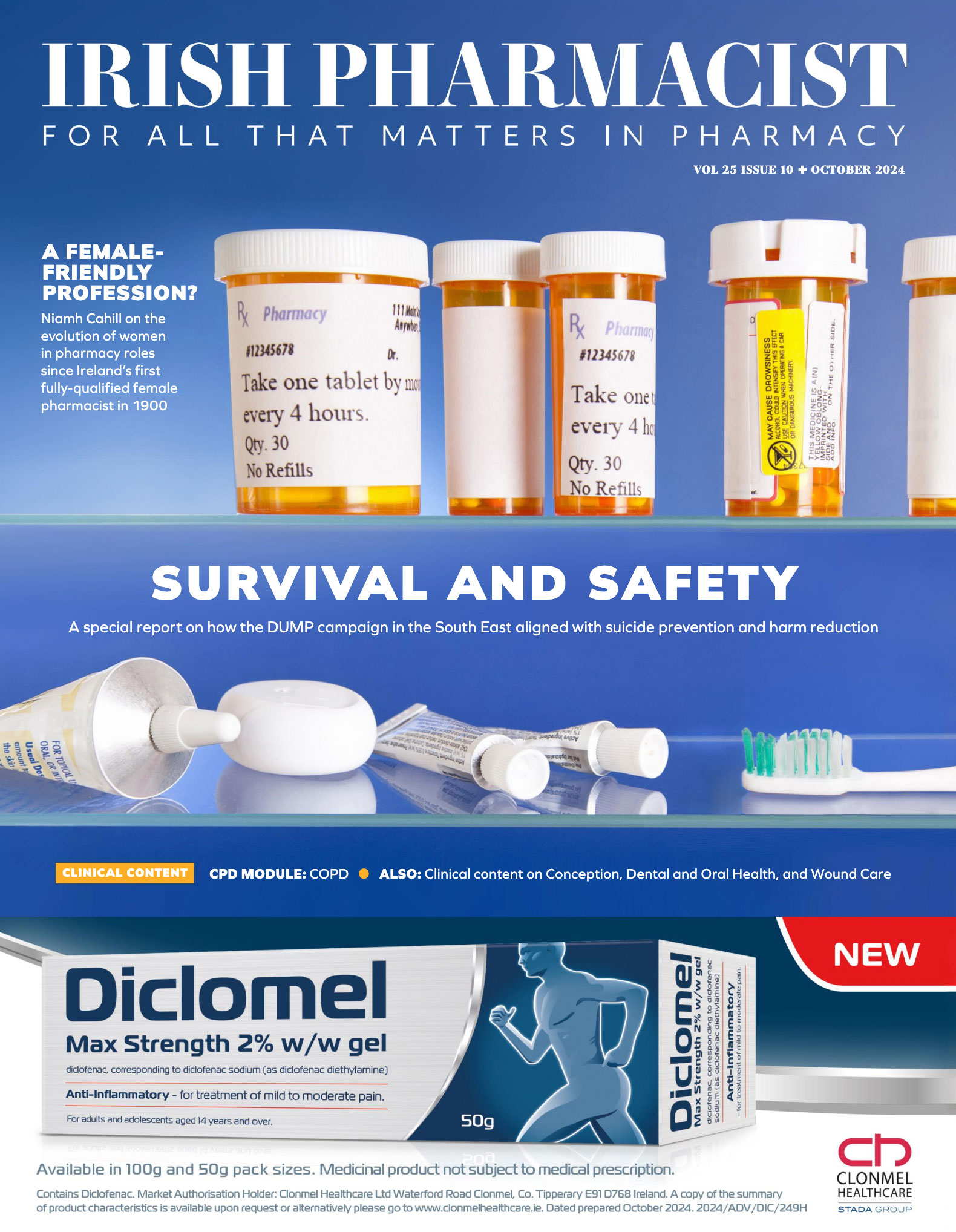Sadly, ‘parish Pump Politics’ May Be The Way To Go For Promoting Pharmacists’ Interests, Writes Fintan Moore
More years ago than I care to remember, back when I was a teenager, I recall an aunt of mine deciding who she was going to vote for in a General Election based on which local politician had been the most helpful to her in getting a streetlight outside her house fixed.
This particular streetlight had been broken for a while, and she had mentioned it to a few different politicians but the one that got it sorted almost overnight was the Fianna Fáil candidate, so she duly gave him her number-one. I was a bit more idealistic back at that age than I am now, so I thought that was a shoddy way to decide something as important as choosing who should run the country.
Surely it was more important to pick candidates based on the policies their party would implement if elected on issues such as Northern Ireland, civil rights, justice equality, etc. Nowadays, I’m less certain that she was wrong. Let’s face it — when it comes to the bigger issues facing the country, how much daylight is there really between most of the parties?
Any possible progress on climate change, transport, justice, housing, education or health needs action on a scale that most politicians don’t have the vision to conceive. Even where a way forward might be possible, there are sectoral interests standing ready to slash the tyres on anything that might move the trough they’ve got their snouts in.
The Government parties have been happy to make things happen, like marriage equality and abortion, which don’t upset the serious vested interests (now that the Catholic Church isn’t the force that it was), but otherwise they don’t rock the boat.
So, if politicians are talking big about vision and change in the health service, then I know they’re just spouting hot air. But if one of the political parties actually had a chat with some community pharmacists and asked us what we want to see, then we should give them a list of streetlights to fix.
Small things that would cost them nothing — like getting rid of the Hardship Scheme, automatic lifelong approvals of phased dispensing for anyone over 65, keeping ‘Covid’ rules on emergency supplies, etc, as permanent changes.
Then that party could stick the wish-list in their manifesto. And if nothing else in the manifesto was particularly noxious, I’d probably vote for them. SNIPPING POINT Ever since 2009, there has been a collective feeling in pharmacy that a Sword of Damocles is hanging over the profession by a thread.
So, if politicians are talking big about vision and change in the health service, then I know they’re just spouting hot air
The prediction of many, including myself, has been that the Department of Health/HSE will one day implement further cuts in fees that make the lowest-performing tier of pharmacies no longer viable. Despite this prognosis, the number of pharmacies has grown from approximately 1,300 in 2009, to roughly 1,850 today.
So far, the fears regarding HSE cuts haven’t come true, although there was an abortive attempt to implement some in 2009. The jury is still out as to when cuts might yet happen, and what the fallout will be in terms of pharmacy closures.
There is, however, another factor now at play that has caused the permanent closure of at least one pharmacy, and that is the shortage of pharmacists. There are no longer sufficient pharmacists available to staff all the country’s pharmacies, so salaries and locum rates have risen accordingly.
The logical consequence of this will be that pharmacies which are only marginally profitable will no longer be worth running. The other consideration is that if this problem continues, then it becomes a safety concern due to inadequate staffing levels, and fatigue due to pharmacists being unable to take days off or holidays.
NOT SUCH A SWEET STORY
At first glance, the news that Irish children hugely reduced their consumption of sugary drinks over the last two decades is good to hear. Between 2002 and 2018, the percentage of children who drink a sugary drink every day dropped from 37 per cent to 5 per cent.
This is definitely progress, although there is a worrying caveat that children from less-wealthy backgrounds are more likely to be in that 5 per cent. However, the obvious question to be asked is, what are children now drinking instead, especially given that obesity rates continued to grow over the period of the study? I reckon that a lot of kids have switched from sugary junk drinks to the ‘diet’ version of the same junk.
From a health perspective, this is a case of jumping from the frying-pan into the fire, or more likely into a larger, hotter, deeper frying-pan. Despite the claims made for diet drinks as a healthier alternative to sugar-sweetened drinks, the facts are sadly different. Multiple studies have shown that people routinely drinking diet drinks have higher obesity levels than people who just drink water.
The main issue seems to be that the artificial sweeteners create a craving for sugary food, so the diet drinks themselves may not be the problem so much as the biscuits, etc, that accompany them.
There is also a possibility that carbonated drinks of any sort encourage hunger feelings due their action in the stomach. Due to the complexity of issues surrounding diet and weight, it’s difficult for any study to measure a factor in isolation, but the consensus on drinks with artificial sweeteners is that they’re better avoided.
CONTRIBUTOR INFORMATION
Fintan Moore graduated as a pharmacist in 1990 from TCD and currently runs a pharmacy in Clondalkin. His email address is: greenparkpharmacy@gmail.com.







